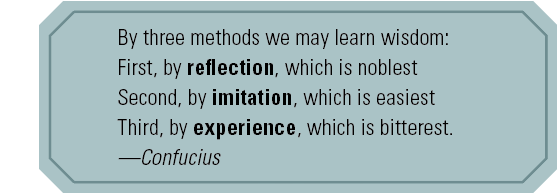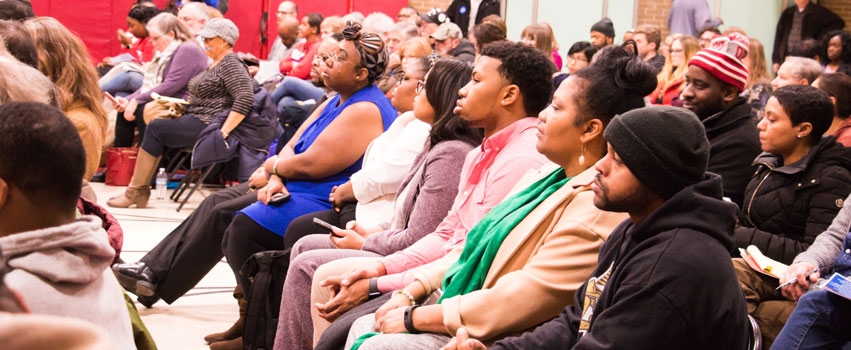Experience: A Blessing or Curse?

Many of us have a love/hate relationship with our past experiences. We appreciate the wisdom gained, while regretting poor decisions causing us to fail.
“I sure wish I could have that conversation back.”
“If only I had taken a different job…”
We yearn for a second chance to have a better experience, yet what’s happened has happened. These lessons form the foundation of who we are. While we cannot have a do-over for what we have done, we can more intentionally create new experiences. Paying great attention to the world around us can help us control what happens to us, and by us.
Longevity and Reflection
The word experience carries a heavy weight in the workplace. We are judged—and we judge others—through our perception of experience. EXPERIENCE is a prominent heading on our resumes. We get hired for jobs because we have experience, and we are overlooked for jobs because we do not have enough experience. Sometimes we get rejected for having too much experience.
Does longevity always lead to superior experience? We all have an equal measure of time—how we use our time is our decision.
I recall a former supervisor who was complaining about an underperforming employee. This employee had been with the company for many years, in many roles, and had never really lived up to his potential. He relied on the technical skills he developed over the years, resisted change, and over time his relationships disappeared. His “good enough” was not good enough.
My supervisor described him as having 32 years of seniority, and five years of experience. Ouch!
The lesson he learned too late was that his skillset was decaying, rather than improving, with time. Our lesson is that we need to adapt and adopt: adapt to the many new opportunities surrounding us, and adopt the mindset that our best days are still ahead of us.
The reality is we do not learn from experience—we learn when we reflect on experience. In other words, it is when we think through what happened and change our behavior that we can increase our effectiveness.

Reframing Experience
Here are three keys to reframe how you use experience as a leader:
- Past: Reflect. Think of a few powerful experiences in your life—a time when you failed, lost someone important in your life, or when you really let someone down. Reflecting thoughtfully on past experiences can identify clues to future decision making and behavior change. What were you thinking or feeling? What did you learn and how can you apply this understanding to today?
- Present: Do not be a prisoner. Our brain looks for patterns and systems to make sense of what is happening around us. These patterns and systems can narrow our thinking, creating intellectual prisons. We can fight this prisoner mindset by challenging our thinking through changing our patterns. Cancel a subscription and sign up for the alternate view. Take a left turn versus a right. The reward of changing your patterns is greater wisdom—which is often fed by the unexpected.
- Future: Welcoming strangers. Many of us live in perpetual routine, particularly our relationships. We associate with the same, like-minded people. Strangers, on the other hand, offer risk and great rewards. Expand your network to include new voices—strangers who can stimulate your learning and impact. Move from who has influenced you to who should be influencing you.
Our experience is filled with both positive and negative stories. We cannot rewrite what has happened, and our time is best spent looking at today and tomorrow. Your experiences can be a blessing if you commit to reflect, change, and bring new people into your life. As Dr. Seuss once said, “Don’t cry because it is over, smile because it happened!” PM
Todd Popham is the founder and president of Popham & Associates, a coaching, consulting and leadership training firm. He is also a graduate school instructor and executive coach in the EMBA program at Bradley University.
